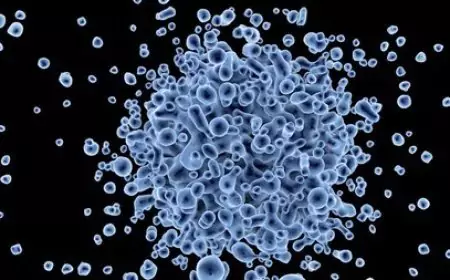Biogenesis Theory, Origin of Life Comes from Previous Life
What was the origin of life like? The theory of biogenesis provides the answer. This theory also breaks Aristotle's thinking in the theory of abiogenesis.

Has it ever crossed your mind from time to time? What is the origin of this life? How did life come about? For a long time, this question has also piqued the curiosity of scientists. Various experiments and observations were carried out to find the answer. In the end, various theories about the origin of life emerged. The two most popular are Aristotle's theory of abiogenesis and the theory of biogenesis. The theory of biogenesis that emerged later believes in the opposite of what is expressed in the theory of abiogenesis. What's that like? Come on, look at the following description.
Overview of Abiogenesis Theory
Talking about the theory of biogenesis will feel incomplete if we don't mention a little about the theory of abiogenesis because these two theories view the origin of life differently.
The biogenesis theory believes that the origin of life comes from previous life. This is in contrast to another theory that emerged around 384-322 BC, namely the theory of abiogenesis. The theory of abiogenesis (genetic spontanea) put forward by Aristotle states that today's life can originate from inanimate objects.
At that time, Aristotle conducted an experiment using a piece of meat. He put the meat in the open space. After some time, the meat rots, and fly larvae appear on the surface of the meat.
Furthermore, in the 17th century, the theory of abiogenesis received support from Antonie Van Leeuwenhoek. Antonie made observations on the straw-soaking water with his homemade microscope. As a result, Antonie found protozoa that appeared in the water, soaking the straw.
It didn't stop there; in the 1700s, scientist John Needham also made observations. Reporting from plantlet.org, Nedham stored the broth in a test tube whose end was tightly closed with a cork. After a few days, bacteria filled the test tube. From these observations, Nedham then believed in the truth of the theory of abiogenesis.
Diving into Expert Thoughts on Biogenesis Theory
Developments in the world of science certainly mean that scientists never stop finding more definite answers to a phenomenon, including regarding the origin of life. Even though there is a theory of abiogenesis, apparently, another theory has emerged, namely the theory of biogenesis.
The essence of the biogenesis theory is to believe that the origin of life comes from previous life. This theory rejects what is put forward in the theory of abiogenesis. The most popular thoughts regarding the theory of biogenesis come from several scientists, including Lazzaro Spallanzani and Louis Pasteur.
First, let's look at what Lazzaro Spallani put forward. To confirm the truth of the biogenesis theory, Spallani carried out an experiment that was almost the same as John Nedham, namely using broth placed in a test tube.
However, Spallani prepared two tubes, namely tube 1 and tube 2. Next, Spallani first boiled the broth in the two tubes for about 1 hour. The goal is to ensure that all microorganisms in the broth have completely died.
After boiling, tube 1 was left open for several days. Meanwhile, tube 2 was also left for several days with the end closed. From his observations, Spallani found that in tube 1, there were many bacteria. In tube 2, there was no bacterial growth at all. Spallani concluded that the bacteria that appeared in the broth in tube 1 came from living bodies. Wow, that's interesting, isn't it?
Spallani's interesting experiment apparently sparked the curiosity of another scientist, namely Louis Pasteur. Pasteur carried out the same experiment as Spallani but refined it further. He uses a tube whose top is shaped like a swan's neck and ensures that air can still enter the tube. The results of the experiment showed that in broth that had been boiled in a tube and then left for days, the water remained clear. No microorganisms appeared in the tube.
From Pasteur's experiments, which finally broke Aristotle's theory of abiogenesis, stronger thinking about the theory of biogenesis was born. It is stated that all living creatures originate from eggs (omne vivum ex ovo), all eggs originate from living creatures (omne ovum ex vivo), and all living creatures originate from living creatures (omne vivum ex vivo).
So, that's a brief explanation of the theory of biogenesis, which, in its development, dismissed the idea that life originates from inanimate objects. This theory explains scientifically the origin of life in the universe. Of course, the theory of biogenesis emerged after going through experiments that had been carried out convincingly by scientists beforehand.

 Sari Anugrahni
Sari Anugrahni